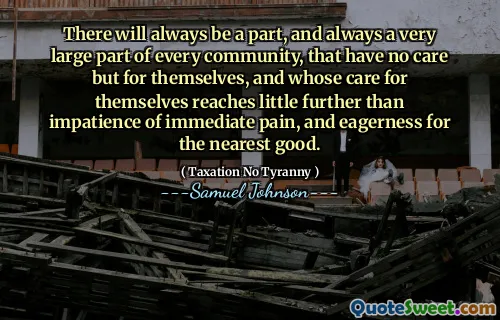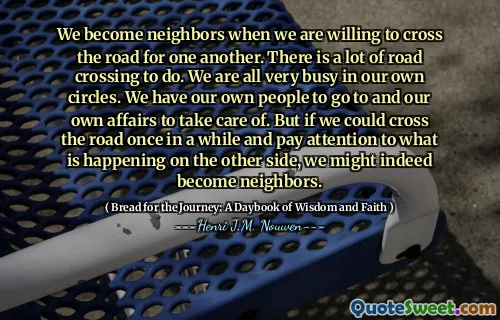
There will always be a part, and always a very large part of every community, that have no care but for themselves, and whose care for themselves reaches little further than impatience of immediate pain, and eagerness for the nearest good.
This quote highlights a fundamental aspect of human nature and social dynamics—the tendency of individuals to prioritize their own immediate needs and desires over the collective good. The observation that a substantial portion of any community is self-focused reflects both a natural instinct for self-preservation and the limitations of altruism. Human beings often grapple with balancing personal interests against societal responsibilities, setting the stage for conflicts, cooperation, and the challenge of creating sustainable communities.
Understanding this propensity is crucial when considering social policies, governance, and community development. When people are primarily concerned with immediate gratification or avoidance of pain, long-term planning and broader societal goals can be difficult to achieve. This self-centered inclination can manifest in various ways—indifference to communal issues, reluctance to contribute to shared resources, or opposition to sacrifices for the greater good.
However, recognizing this human trait also offers an avenue for creating effective systems that align individual motivations with collective benefits. Incentive structures, education, and fostering a sense of shared identity are strategies to bridge personal interests with societal needs. The quote reminds us that practically addressing societal issues requires understanding and working with these inherent tendencies rather than solely against them.
It also prompts reflection on the importance of moral and civic virtues—empathy, altruism, and responsibility—highlighting their role in fostering cohesive communities that can withstand selfish impulses. Ultimately, this insight underscores the delicate balance between individual self-interest and social cohesion, a dynamic that continues to shape the development and stability of societies throughout history.



